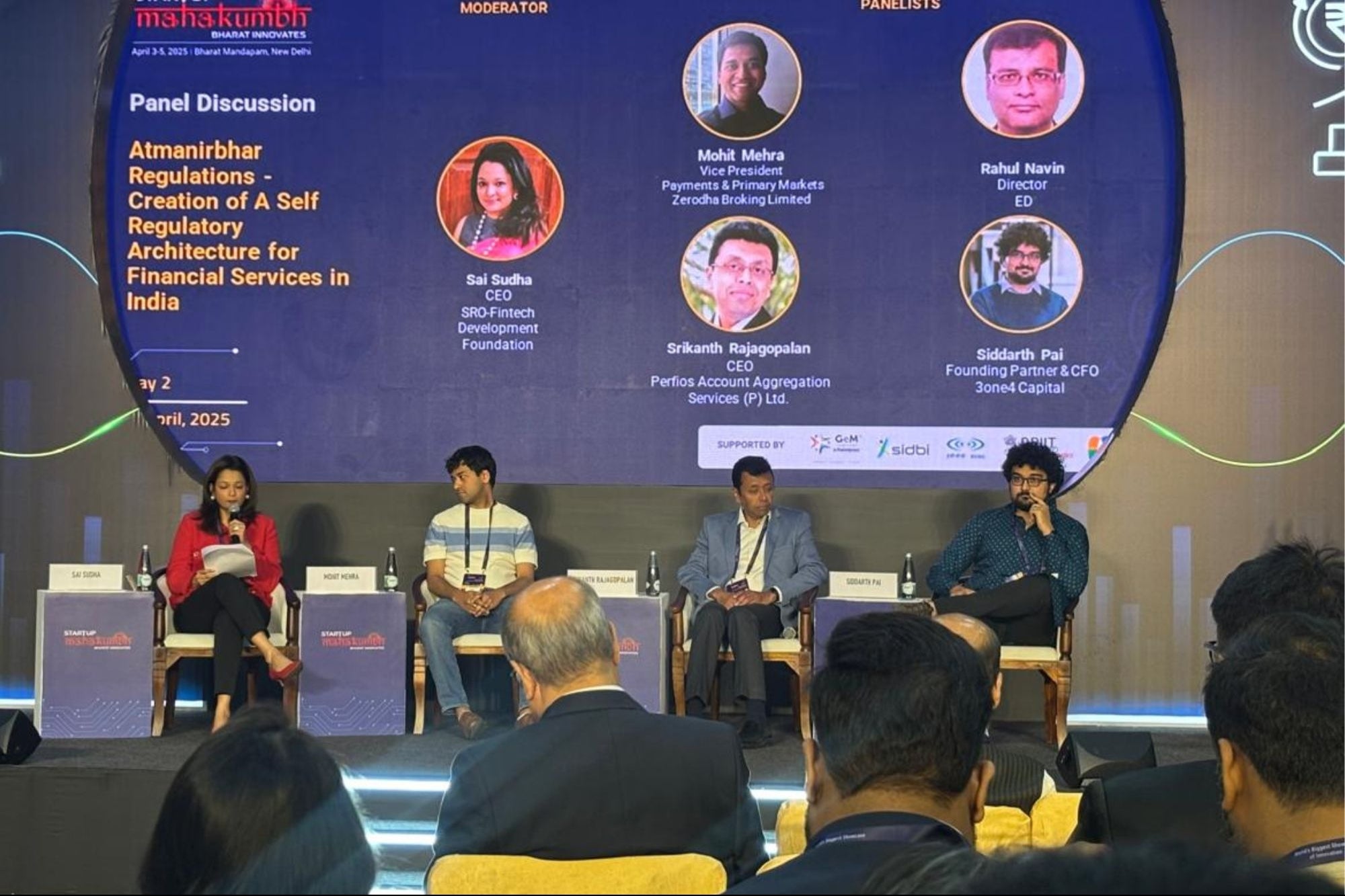India's Fintech Sector Eyes Self-Regulation as It Matures As India's fintech prowess gains global attention, the consensus was clear: global recognition won't come just from growth metrics, but from the strength of governance, standardization, and inclusive innovation.
Opinions expressed by Entrepreneur contributors are their own.
You're reading Entrepreneur India, an international franchise of Entrepreneur Media.

India's fintech ecosystem is racing ahead, innovating at scale, reaching underserved populations, and pushing the boundaries of digital finance. But with rapid growth comes an urgent need for guardrails. Investment, infrastructure, and capital markets—converging on one shared belief: the time for a credible self-regulatory organization (SRO) is now.
India is on the verge of a major transformation in the fintech sector. The proposed SRO marks the beginning of a structured, innovation-driven and unified responsible regulatory framework. It's an opportunity to harmonize innovation, compliance, and consumer protection.
Siddarth Pai, founding partner & CFO, 3one4 Capital, didn't mince words when discussing how fintech has evolved—and sometimes faltered. "We've seen entrepreneurs masquerading circumvention as innovation," he said. "That may work in software, but when you're dealing with people's savings and capital, it's not a risk the nation can bear."
Pai traced the arc of the fintech journey from "move fast and break things" to a more mature, regulated future. He pointed out that in the past, investors were willing to take on regulatory risk if the payoff was promising. "That's changed. Today, if a startup isn't regulated or doesn't intend to be, investors won't cut the check."
For Pai, the SRO isn't just a governance tool—it's a signal of the sector's coming of age. "The regulator doesn't want to be the strict school teacher anymore. The industry must show it can self-govern. That's the evolution we're seeing."
Srikanth Rajagopalan, CEO of Perfios Account Aggregation Services, brought a pragmatic view from his work interfacing with legacy financial institutions. "Innovation isn't always about doing something new—it's often about doing the same things better and faster," he said.
One of the biggest pain points in fintech today, he noted, is the lack of standardized compliance frameworks. "Entrepreneurs spend excessive time decoding different compliance rules across banks and institutions for the same service. That friction stifles trust and growth."
For Rajagopalan, one of the SRO's most urgent mandates should be to "standardize compliance and take the pain out of it." In his view, regulation should be an enabler, not a barrier. "When compliance becomes a trust enabler rather than a deterrent, you unlock real progress."
Mohit Mehra, VP, payments & primary markets at Zerodha Broking Ltd., brought historical perspective, noting that stockbrokers in India effectively operated within an SRO structure for decades. "The early exchanges were essentially associations of brokers—self-governing bodies before formal regulation took over."
Today, while formal regulation defines the space, he believes there's still a role for intermediary institutions—exchanges, associations, and now fintech SROs—to set industry norms and customs. "There's a lot of regulation that isn't explicitly covered, but best practices still evolve and get carried forward. The SRO can help document and institutionalize these."
He emphasized how this intermediary role can ease the burden on regulators. "The regulator can't be expected to micromanage every operational issue. SROs can act as a sounding board and a support system for both the industry and the regulator."
Pai returned to the conversation to highlight recurring risks. He recalled how a single regulatory circular once triggered the birth of multiple unicorns—underscoring both the power and the precarity of policy in fintech. "Some players exploit regulatory grey areas. That's exactly where an SRO can step in—to check misuse and advocate for co-created regulation."
The ideal future, he suggested, is one where the SRO doesn't just police the industry but also works with regulators to build frameworks proactively. "Co-creation is key. It helps avoid loopholes and supports sustainable innovation."
When asked about the most critical segments for innovation, Rajagopalan pointed to an often-ignored demographic: low-income workers. "One health emergency can throw a household into a financial crisis. Yet, financial advice remains expensive and inaccessible."
He argued that innovations like account aggregators, backed by data protection laws, can change that. "Everyone is data-dense today. The challenge is accessing that data securely and affordably to offer quality financial advice to those who need it most."
As India's fintech prowess gains global attention, the consensus was clear: global recognition won't come just from growth metrics, but from the strength of governance, standardization, and inclusive innovation.
In that context, India's fintech SRO isn't just a domestic play—it's a strategic statement. As Mehra put it, "Customs and industry norms are already evolving. The SRO can give them structure and speed."
The panellists were speaking at the Startup Mahakumbh, moderated by Sai Sudha, CEO of the SRO-fintech development foundation.










